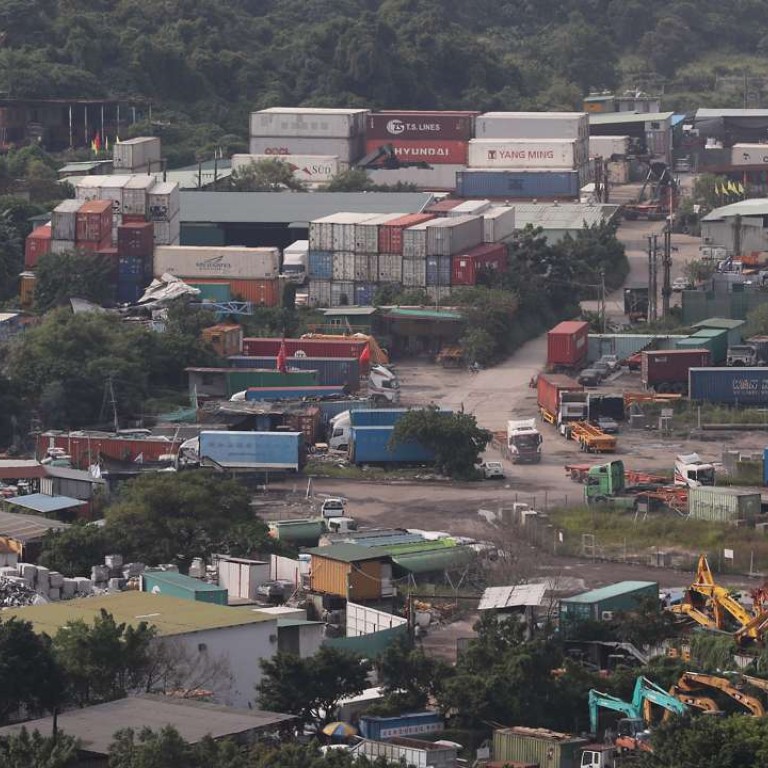
Easier to move people than factories, storage association head says, weighing in on housing controversy
Difficult to develop brownfields as some industrial operations at these sites can be operated only on ground floor
It is easier to relocate residents to free up land for development than to move container yards and recycling factories, said the chairman of an open storage operator association, weighing in on an ongoing housing controversy.
Brownfield sites are agricultural land in rural parts of the New Territories occupied by various industrial operations, while greenbelt ones are heavily vegetated areas under stricter planning rules.

“For example, some have heavy-duty machinery that cannot be moved to upper floors,” he said.
In comparison, Tang said, it was easier to relocate people.
While recognising that the latter also presented difficulties, he pointed out that with the current housing situation in Hong Kong, including issues such as high prices, “the sacrifice of certain individuals for the general good” was needed.
Tang added that indigenous villages with a long history should be preserved, while those with lower importance could be relocated.

